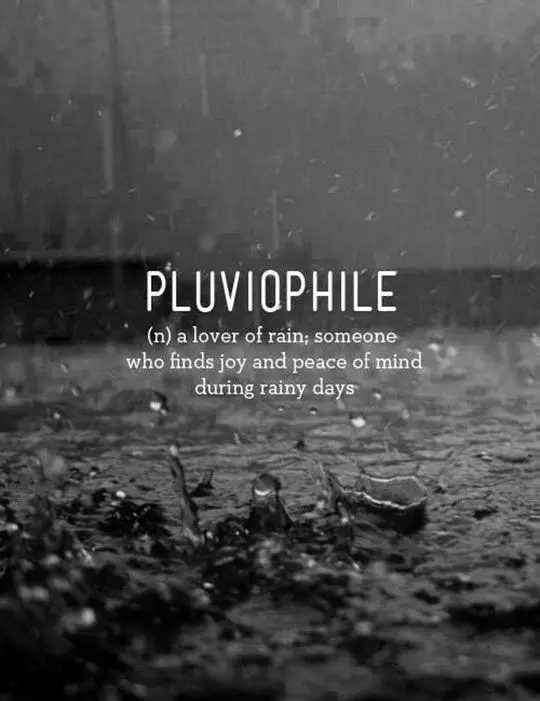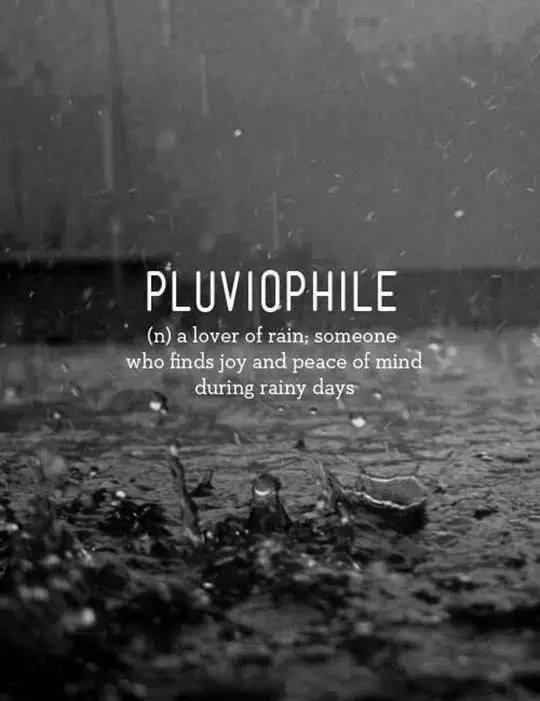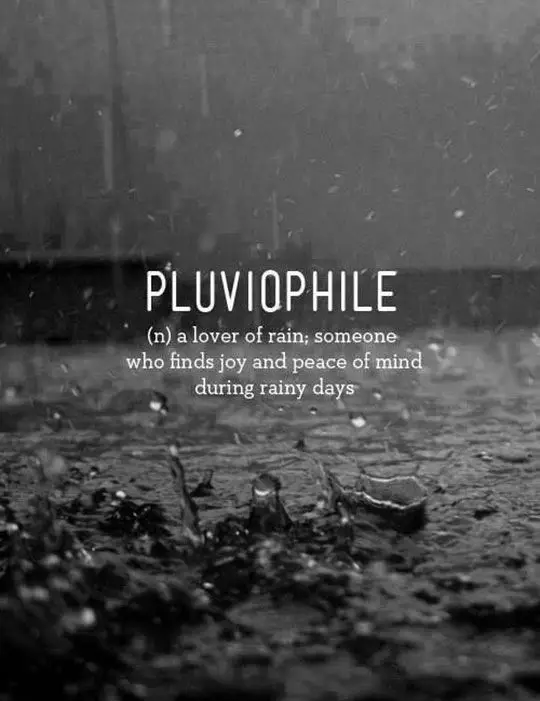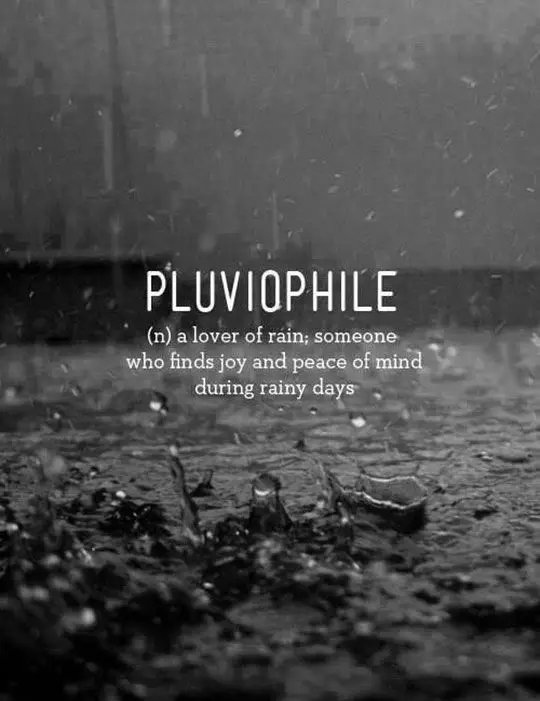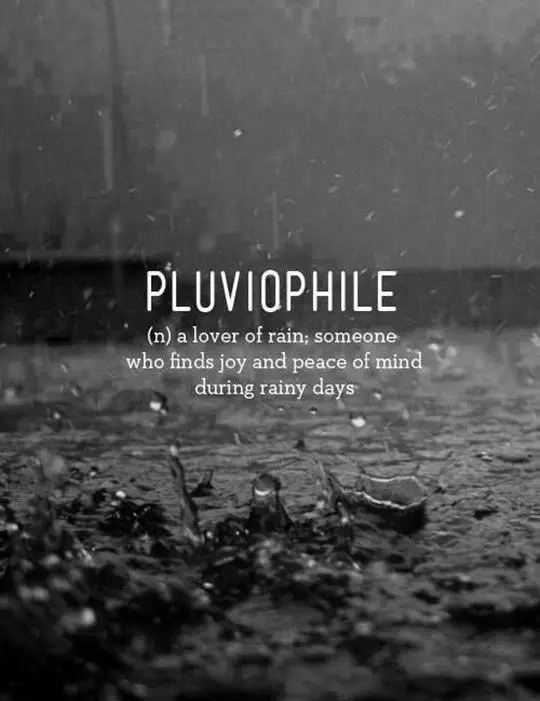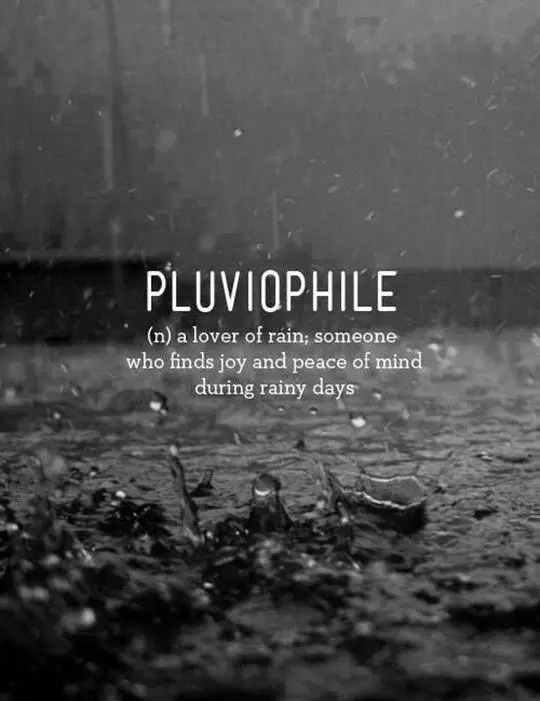The smell of rain is caused by a compound called geosmin released by soil-dwelling bacteria. The scent of rain is something that many people find soothing and refreshing.
It can bring back memories of childhood and the joy of playing in the rain. But have you ever wondered what actually causes that distinct smell when it rains? It turns out the smell of rain is caused by a compound called geosmin.
Geosmin is produced by soil-dwelling bacteria called actinomycetes. When raindrops hit the ground, they can disturb these bacteria, causing them to release geosmin into the air. The scent of geosmin is often described as earthy, musty, or even petrichor, which is the term used to describe the smell of rain on dry earth. So, the next time you take a walk in the rain, take a deep breath and savor the unique aroma of geosmin in the air.
The Science Behind Rain’S Distinct Aroma
The distinctive smell that accompanies rain is a result of various scientific factors. During rainfall, water droplets absorb and react with compounds present in the surrounding environment. These compounds, known as volatile organic compounds (VOCs), are released into the air, creating the distinct aroma we associate with rain.
The specific VOCs released during rainfall can vary depending on weather conditions. For example, in dry regions, the smell of rain is often stronger due to the build-up of VOCs over a longer period. Additionally, the intensity of the aroma can be influenced by factors such as temperature, wind, and humidity levels.
The smell of rain is not only a pleasant sensation but also serves practical purposes. It is believed that humans and animals have developed an evolutionary response to the smell, as it may indicate the presence of water for survival purposes.
Overall, the smell of rain is a fascinating phenomenon influenced by the interaction of water droplets with compounds in the environment. Understanding the science behind it adds to our appreciation of the natural world.
The Role Of Bacteria And Soil In Rain’S Fragrance
The smell of rain, commonly known as petrichor, has always fascinated human beings. It is a unique fragrance that emerges when rain first touches the ground. The refreshing scent can be attributed to various factors, including the presence of bacteria and microorganisms in the soil.
When raindrops fall on the earth’s surface, they interact with the soil and release volatile organic compounds (VOCs) into the air. These VOCs, combined with the moisture and humidity in the atmosphere, create the distinct smell of rain. The bacteria and microorganisms present in the soil also play a crucial role in producing this fragrance.
Petrichor has its origins in two Greek words: “petros” meaning stone and “ichor” meaning the essence of the gods. This term was coined by two Australian researchers in the 1960s who discovered that the smell of rain emanates from oils released by plants during dry periods, which are then absorbed by the soil.
So, the next time you step outside after a rainfall, take a moment to appreciate the distinctive scent of petrichor. It is a fascinating natural phenomenon that reminds us of the interconnectedness of our environment and the symbiotic relationship between bacteria, soil, and rain.
Factors Influencing The Intensity And Variety Of Rain Smells
Factors influencing the intensity and variety of rain smells are influenced by multiple factors. One important factor is the presence of environmental pollutants, which can significantly affect the odor of rain. The interaction between pollutants and rainwater can alter the natural scent of rain, leading to different and sometimes unpleasant smells. Pollutants such as sulfur dioxide, nitrogen oxides, and volatile organic compounds can react with rainwater to create distinct odors.
In addition to pollutants, vegetation also plays a role in the aroma of rain. The release of volatile organic compounds from plants during rainfall contributes to the overall scent. Different types of vegetation can emit varying scents, such as the earthy smell of wet soil or the refreshing aroma of pine forests after a downpour.
These factors, along with others such as temperature, humidity, and geographical location, contribute to the complexity and variability of rain smells. Understanding the impact of these factors can help researchers and scientists better comprehend the olfactory experience associated with rainfall.
Psychological And Emotional Effects Of Rain Smell
Have you ever noticed how rain has a distinct smell? That fresh, earthy scent that fills the air just before or after a rain shower. It turns out, the smell of rain can have psychological and emotional effects on us.
One of the fascinating effects of rain smell is its ability to evoke nostalgia and memories. The distinct odor can transport us back to specific moments in our lives, reminding us of happy or significant events. This connection to the past can bring about feelings of comfort and happiness.
Moreover, the smell of rain can also influence our mood and relaxation levels. Research has shown that the scent of petrichor, the term used to describe the smell of rain, can have a calming effect on our minds. It can reduce stress and induce a sense of tranquility, helping us unwind and find solace.
So, the next time you catch a whiff of rain, take a moment to truly appreciate its magical aroma. It may just transport you back in time and bring a sense of peace to your day.
Cultural Significance And Symbolism Of Rain’S Fragrance
The cultural significance and symbolism of rain’s fragrance has been explored in various forms of literature and poetry. Writers have often used the scent of rain as a metaphor for renewal, cleansing, and rebirth. The elusive aroma that accompanies rainfall has the power to evoke strong emotions and memories, transcending barriers of time and location.
Ancient civilizations and indigenous cultures have developed rituals and traditions around the scent of rain, viewing it as a sacred and spiritual phenomenon. These rituals often involve deep appreciation for the earth’s natural cycle, gratitude for the life-giving properties of rain, and prayers for abundance and growth.
The scent of rain holds a special place in the human experience, connecting us to nature and reminding us of our vulnerability and interdependence with the environment. It serves as a reminder of the beauty and fragility of life, a symbol of hope and the promise of new beginnings.

Credit: urnabios.com
The Allure Of Rain Aroma In Art And Design
Rain, with its unmistakable scent, has captivated artists and designers with its unique aroma. This aromatic phenomenon has inspired the creation of rain-inspired perfumes and fragrances, allowing individuals to experience the refreshing scent of rainfall even when indoors. These perfumes and fragrances aim to evoke a sense of nature and nostalgia, transporting individuals back to serene and rainy landscapes.
Furthermore, incorporating rain scent into interior design has become a popular trend. Designers use essential oils and diffusers to infuse spaces with the invigorating and soothing fragrance of rain. This not only enhances the ambiance but also creates a calming and refreshing environment, making individuals feel closer to nature.
The smell of rain holds a special place in the world of art and design, allowing artists and designers to capture the essence of this natural phenomenon in their creations. From rain-inspired perfumes to interior design, the allure of rain aroma continues to enthrall and inspire.
Utilizing Rain Smell For Improved Well-Being
Utilizing rain smell for improved well-being is a concept that has gained popularity in recent years. Aromatherapy and rain-scented oils are commonly used to create a calming and soothing atmosphere. The refreshing smell of rain has been associated with relaxation and stress relief, making it a perfect addition to spa treatments. Whether it’s in the form of essential oils, candles, or diffusers, incorporating the fragrance of rain can enhance the overall spa experience for clients.
The rain smell has been found to have a positive impact on mental and emotional well-being. Its fresh and clean scent is often used to create a sense of tranquility and serenity. Additionally, the rain fragrance can help to alleviate symptoms of anxiety and promote better sleep. By incorporating rain-scented oils and other aromatic products into spa treatments, therapists can provide a holistic approach to their clients’ well-being.
Rain Smell And Its Influence On Product Marketing
Rain scent has a profound impact on product marketing. Its unique aroma captivates the senses and creates a refreshing ambiance. Rain-scented products, such as candles and diffusers, are gaining popularity for their ability to transport individuals to a soothing rainy atmosphere.
Creating a warm, cozy environment is essential to attracting customers. The use of rain-scented candles and diffusers provides an inviting and tranquil setting. The refreshing aroma of rain not only appeals to individuals seeking relaxation but also those looking to enhance their mood.
Rain-scented products are particularly popular in home decor stores, spas, and wellness centers. Whether it’s the subtle smell of a summer rain or the crisp scent of a tropical downpour, rain-scented products have a universal appeal.
Enhancing Artificial Rain Scent In Various Settings
Enhancing the artificial rain scent in various settings helps create a more immersive experience. By reinventing the synthetic rain fragrance, we can elevate the ambiance and transport individuals to a virtual rainstorm. This technology finds applications in entertainment and immersive experiences, adding a new dimension to performances and attractions.
Frequently Asked Questions
What Is The Smell Of Rain Called?
The smell of rain is called petrichor and is caused by the release of oils from plants.
What Does Rain Coming Smell Like?
Rain coming smells fresh and earthy due to the release of petrichor, a scent released by rain hitting the ground.
Why Do Humans Love The Smell Of Rain?
Humans love the smell of rain because it is earthy, refreshing, and reminds us of nature.
Why Does Rain Smell And What Is It Called?
Rain smells because of a compound called petrichor, which is released when raindrops hit the ground. This unique scent is a combination of plant oils and bacteria.
Conclusion
Overall, the smell of rain is a fascinating and complex phenomenon that has intrigued humans for centuries. From the earthy scent created by petrichor to the chemical reactions that take place when raindrops hit the ground, there is still much to learn and discover about this natural phenomenon.
Whether you find joy in the refreshing smell of rain or simply appreciate the science behind it, there is no denying the power of this sensory experience. So, the next time you’re caught in a summer shower, take a moment to breathe in the beautiful fragrance of rain and marvel at the wonders of nature.
Remember, even the smallest aspects of our environment can bring joy and curiosity to our lives. Embrace the magic of the rain and let your senses guide you on an amazing olfactory journey.

